Students Reflect on Arab American Heritage Month
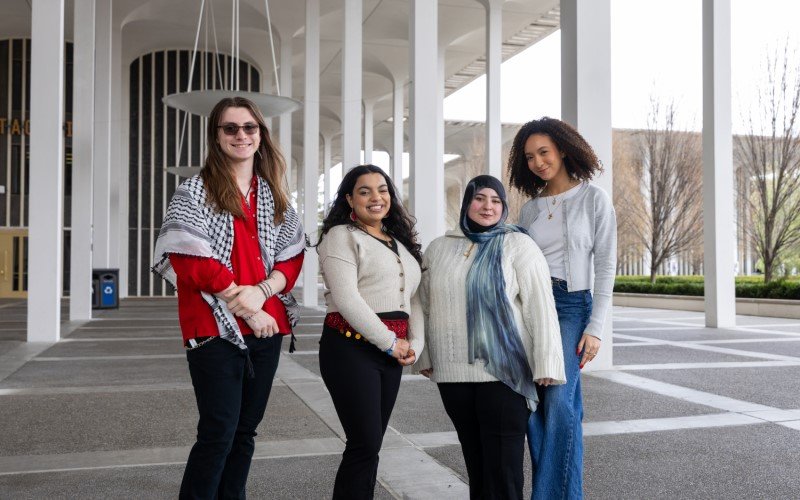
ALBANY, N.Y. (April 29, 2025) — April is Arab American Heritage Month, a time to focus on the achievements and impact that Americans of Arab heritage have had on the United States.
As the month draws to a close, some UAlbany students share why this recognition is so important to them.
— Photos by Mario Sotomayor
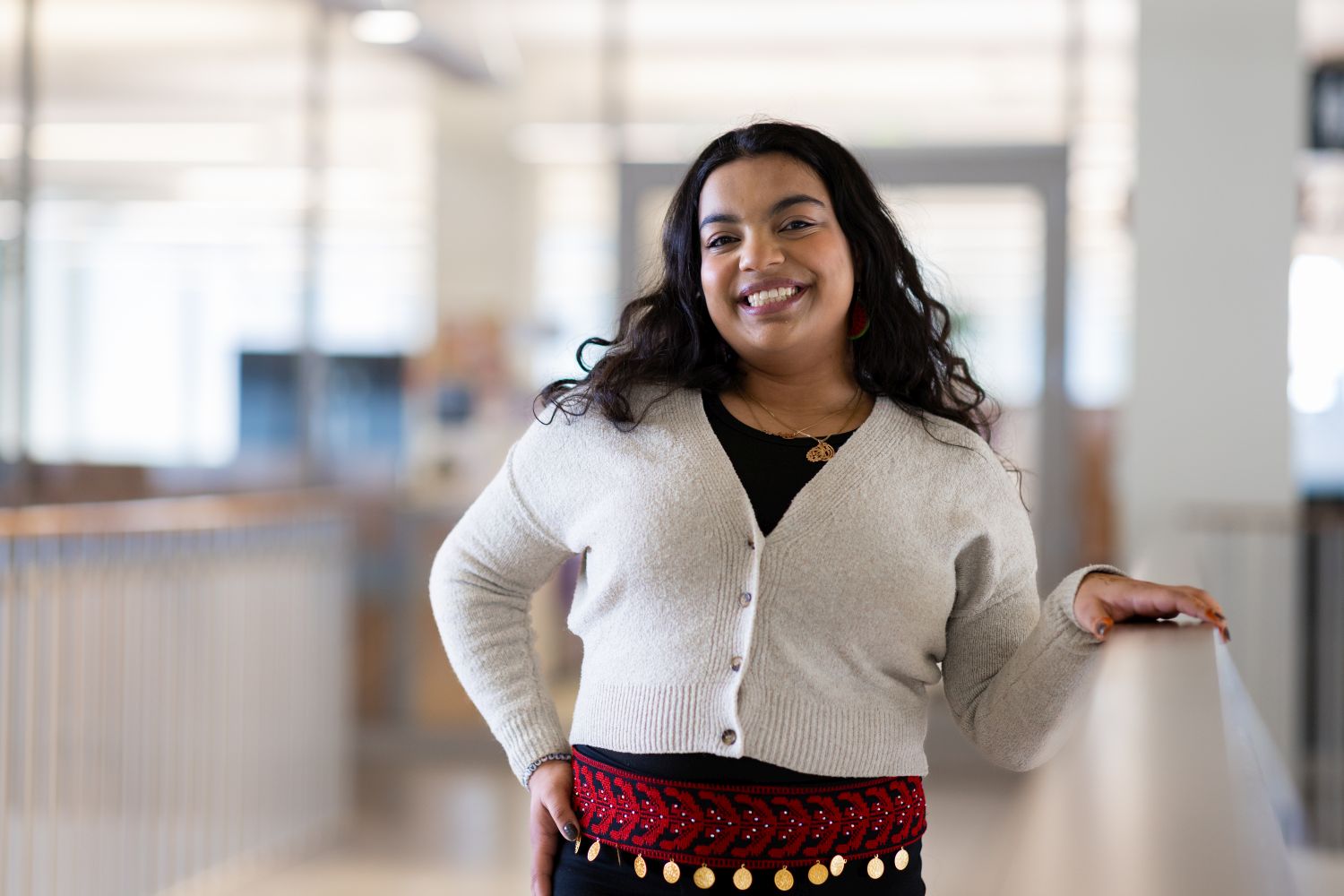
Selwa Khan
Class of 2025
President and Co-founder, Arab Student Union
Peer educator for Intercultural Student Engagement
Arab American Heritage Month is important for visibility. Arab Americans have been reduced to very harmful stereotypes. In my experience, the only way to begin to deconstruct these preconceived notions is to learn and engage with our culture, food, music and, most importantly, our people. Just sitting down at an Arab American table for a meal is enough to experience the community, hospitality and resiliency that is inherent to Arab and Arab American culture and identity. That experience entirely dismantles biases and stereotypes.
Celebrating Arab American Heritage Month provides visibility, which is the first step of many towards solidarity. When I came to UAlbany, there were no Arab culture clubs and now, four years later, there are two, including the Arab Student Union, where I serve as president. Visibility has allowed both of our clubs and our culture to be accepted and embraced by the wider UAlbany campus, and I couldn't be more grateful.
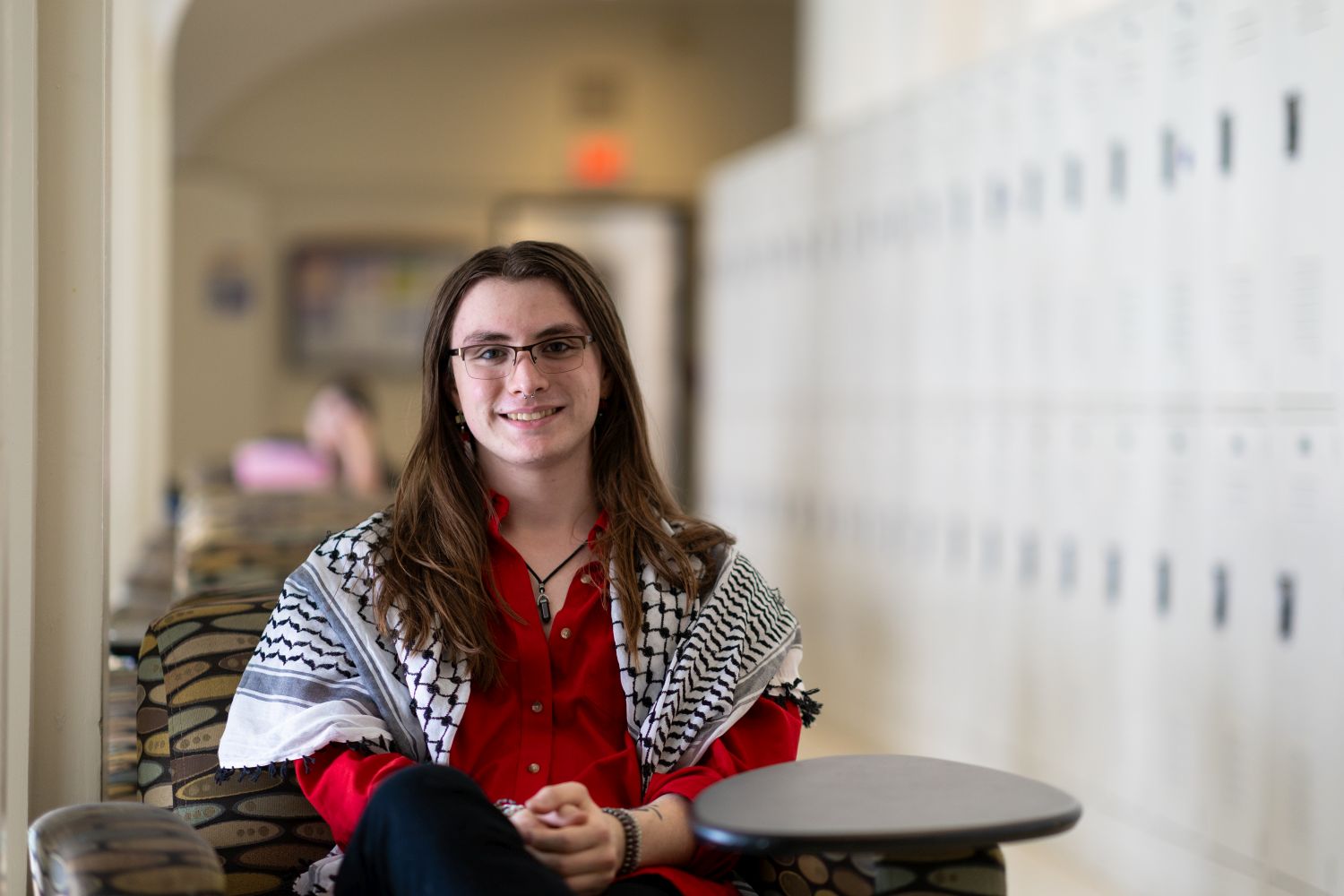
Kamal Najjar
Class of 2028
President, Buddhist Student Union
Treasurer, Arab Student Union
Especially at a time like the present, where Arab identities are being demonized, taking the time to celebrate my identity and heritage as an Arab American has become even more meaningful to me. Celebrating Arab American Heritage Month means spending time celebrating culture, learning about the history surrounding Arabs and Arab Americans, finding ways to give back to the community, and standing in solidarity with Arabs facing violence across the world.
I wish people knew more about the variety of cultures under the Arab label. In the U.S. especially, Arabs are made to be an “other,” which strips away Arab diversity by pushing Arabs into the “other” box. I want people to know that “Arab culture” is not monolithic and that it’s made up of many different pieces, each individual one differing from each other.
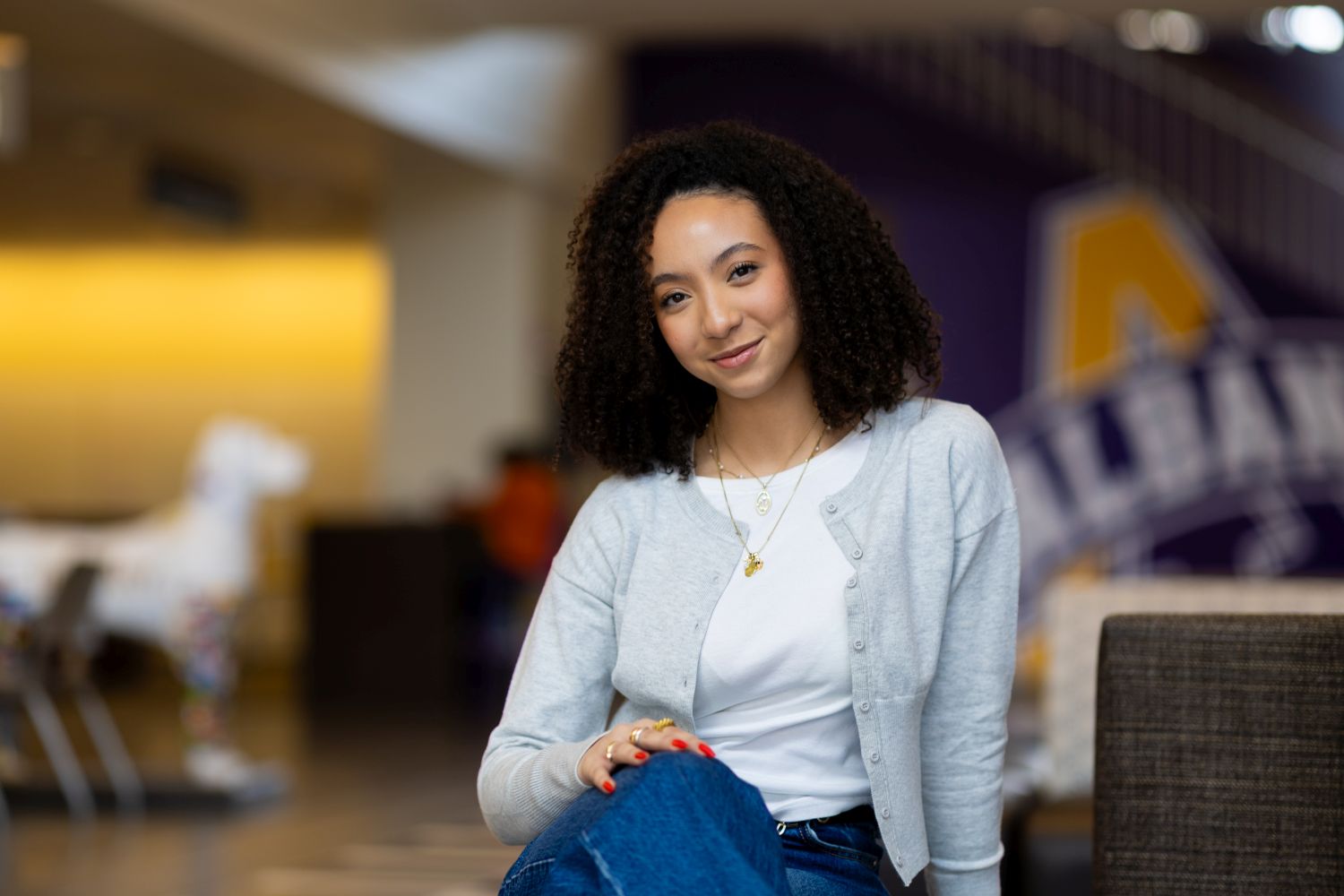
Sofia Lamdichi
Class of 2028
Writer, Albany Student Press
It is important to celebrate and recognize Arab American Heritage Month because the social climate present in this country aims to strip the humanity from Arab Americans. Having a month to shed light onto the culture, community and humanity present in Arabs personally means that there is a chance to move this country into the right direction. Hospitality and generosity are huge parts of Arab culture, there is not a single thing someone would not be willing to give to their gifts. Arabs are often portrayed as conniving in media but in reality, we are willing to do anything to help our neighbors and that is something I love about our culture.
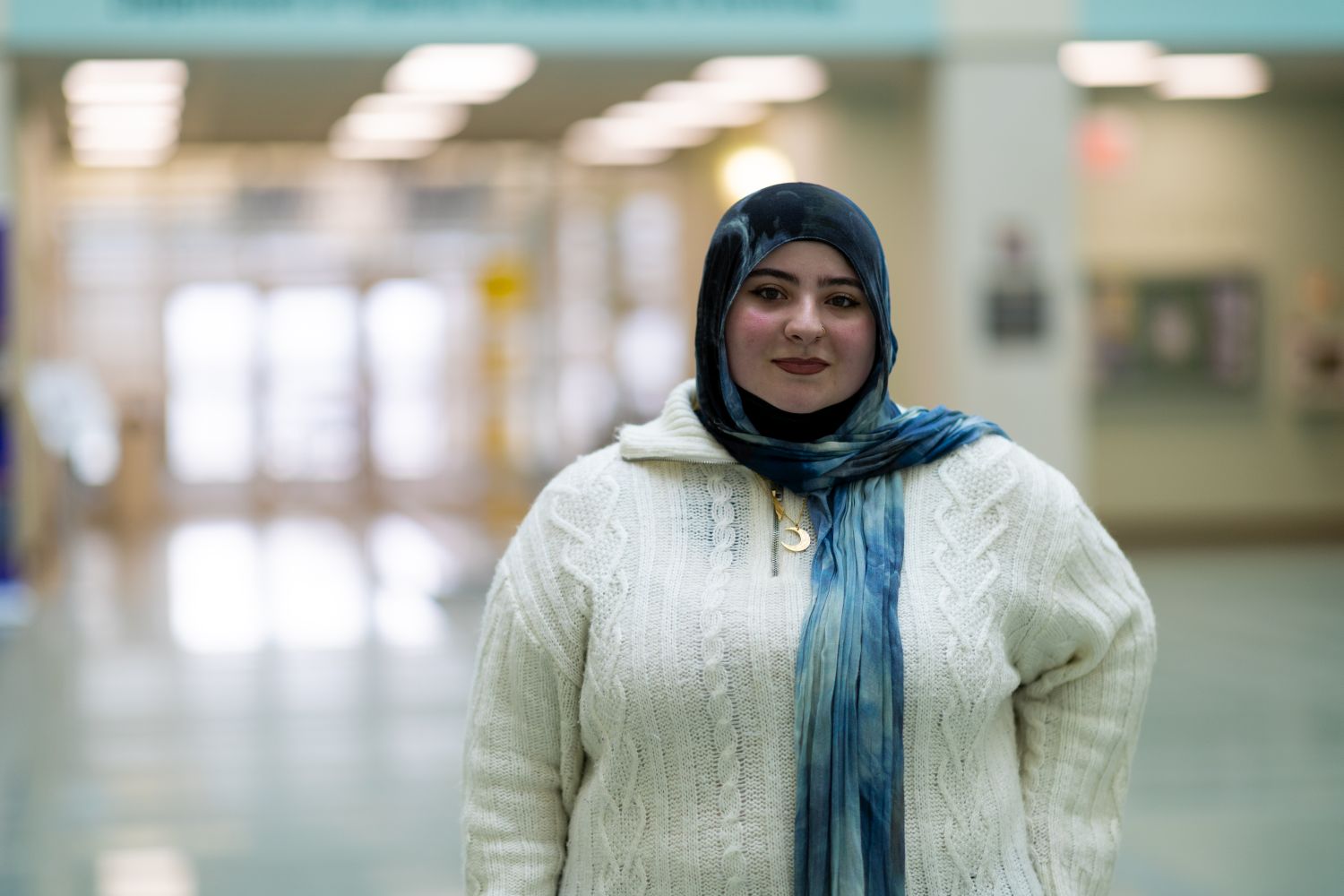
Sara Salah
Class of 2025
Vice President & Co-founder, Arab Student Union
Housing Manager, University Apartments
Career and Professional Development-Career Assistant
Arab American Heritage Month is important because it brings visibility to a community that has often been overlooked, stereotyped and misunderstood. Arabs are often given negative stereotypes through the media and public discourse. Arab American Heritage Month creates space to highlight the stories, achievements and struggles of Arab Americans who have contributed so much to this country while often facing discrimination, especially in times of political tension.
One influential figure in Arab culture who really inspires me is Edward Said. As a Palestinian scholar, writer and activist, he used his voice to challenge stereotypes and speak up for the Palestinian people at a time when very few others would. What stands out to me about Said is how he bridged worlds—he worked in academia, but his words also reached everyday people. He talked about identity, exile and resistance in a way that was both personal and powerful. Edward Said is a reminder that identity isn’t something you have to hide or tone down. It’s something you can use to educate, to empower and to push for change. His legacy shows that our voices matter, and that being both Arab and American isn’t a contradiction, it’s a very powerful place to speak from.




